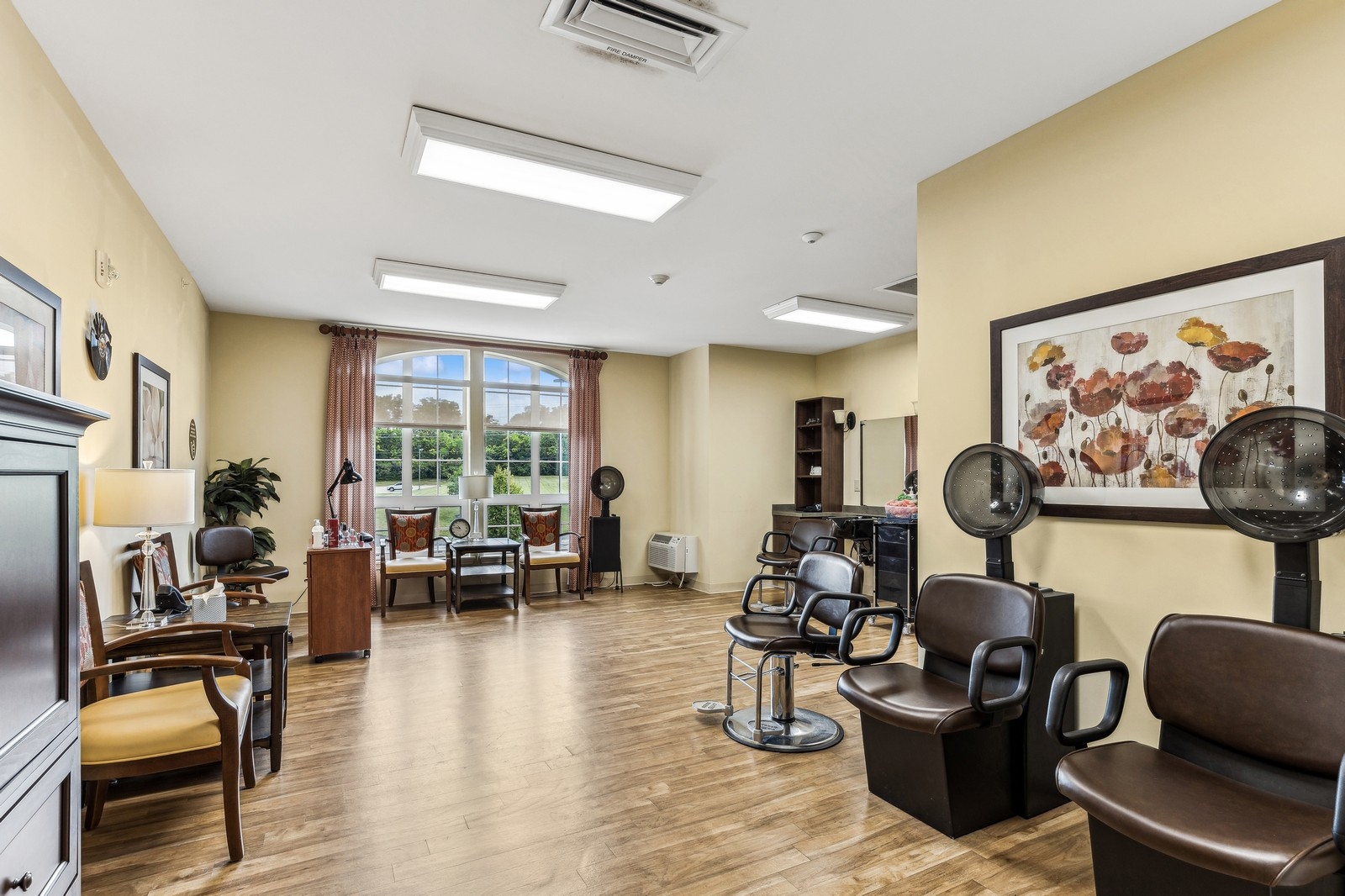Recognizing when a loved one might need memory care is crucial in ensuring their well-being and quality of life. It’s natural to observe changes in their behavior as our loved ones age, but discerning which changes are part of normal aging and which signal deeper issues can be challenging.
A few signs it’s time for memory care could be:
- Increasing forgetfulness
- Experienced disorientation
- Difficulty performing daily tasks
- Poor in things like personal hygiene, finances, or critical thinking
- Withdrawal or social isolation
These could also be symptoms of other things. For example, a senior may withdraw from regular social activities if they’re feeling depressed or dysregulated. So, it’s important to have candid conversations with your loved ones to see where they’re at. Involving other people, like professional caregivers, who can provide expert advice is also beneficial.
Early Warning Signs It’s to Consider Memory Care
Identifying early warning signs that suggest a loved one may need memory care is essential for timely intervention. Here are some subtle indicators to watch for:
Forgetfulness
While occasional forgetfulness could be a normal part of aging, frequent memory lapses that disrupt daily life aren’t and may signify a need for memory care. Examples include forgetting recently learned information, important dates or events, and relying heavily on memory aids or family members for things they used to handle independently.
Disorientation
Disorientation to time and place is another red flag indicating dementia. This might involve getting lost in familiar areas, having difficulty recognizing once-familiar faces, or confusion about the date, season, or passage of time.
Difficulty with Daily Tasks
Struggling to complete routine tasks that were once second nature can also indicate cognitive decline. This could include trouble managing finances, cooking meals, driving, or following a familiar recipe.
Poor Judgment
A noticeable decline in judgment can signal that memory care is needed. This decline could include things like making poor financial decisions, neglecting personal hygiene, or wearing inappropriate clothing for the weather.
Withdrawal from Social Activities
It could be due to difficulties they face remembering, following conversations, or engaging in activities they once enjoyed if your loved one is withdrawing suddenly from previously enjoyed hobbies, social activities, or avoiding interactions with friends and family. Social isolation can increase an individual’s risk of developing dementia by 50%.
Conversations with Family
Discussing the need for memory care with family members can be a sensitive and challenging task. Here are some tips to approach this conversation with compassion and understanding so that everyone is on the same page:
Choose the Right Moment
Pick a time when everyone involved is calm and can focus on the discussion. Avoid times of stress or distraction to ensure the conversation is productive. Also, understand that this will likely be a series of conversations instead of a single conversation.
Be Honest & Compassionate
Express your concerns honestly and use specific examples of behaviors or incidents that have raised your worries. Approach the conversation with empathy, acknowledging the emotional weight of the topic and that others may have differing views.

Involve a Professional
Consider involving a healthcare professional who can provide an objective perspective and explain the medical aspects of memory care. Their guidance can lend credibility to your concerns and suggestions.
Focus on Quality of Life
Emphasize that memory care’s goal is to maintain your loved one’s quality of life as their abilities change due to dementia or one of its related conditions. Explain how specialized care can support safe and comfortable living in the face of their diagnosis.
Benefits of Memory Care
Memory care offers numerous benefits that can significantly enhance the well-being of individuals with cognitive impairments:
Specialized Care
Memory care communities have trained staff who specialize in caring for individuals with dementia or Alzheimer’s disease. These communities often offer personalized care plans tailored to each resident’s needs.
Safety
Memory care communities are typically designed with secure environments to prevent wandering and provide a safe space for residents. This can include things like locking entry and exit points, security personnel on staff, and sign-in and sign-outs required.
Quality of Life
Dementia can eventually cause a decline in a senior’s quality of life as the symptoms become more severe. Residents in memory care typically receive constant attention and engagement through structured activities and therapies designed to stimulate cognitive function and complement their overall well-being.
Explore Memory Care Options
Recognizing the signs that indicate a loved one may need memory care is the first step toward ensuring their safety and quality of life. You can make informed decisions that support your loved one’s well-being by understanding these early indicators, having compassionate conversations with the rest of the family, and exploring the benefits of professional care.
Take action if you see these signs we discussed above in your loved one. Seek out professional advice and consider the options available for memory care. Call our team at The Enclave of Springboro today. We’re happy to review how memory care can be beneficial and provide a tour of the community here in Springboro.











